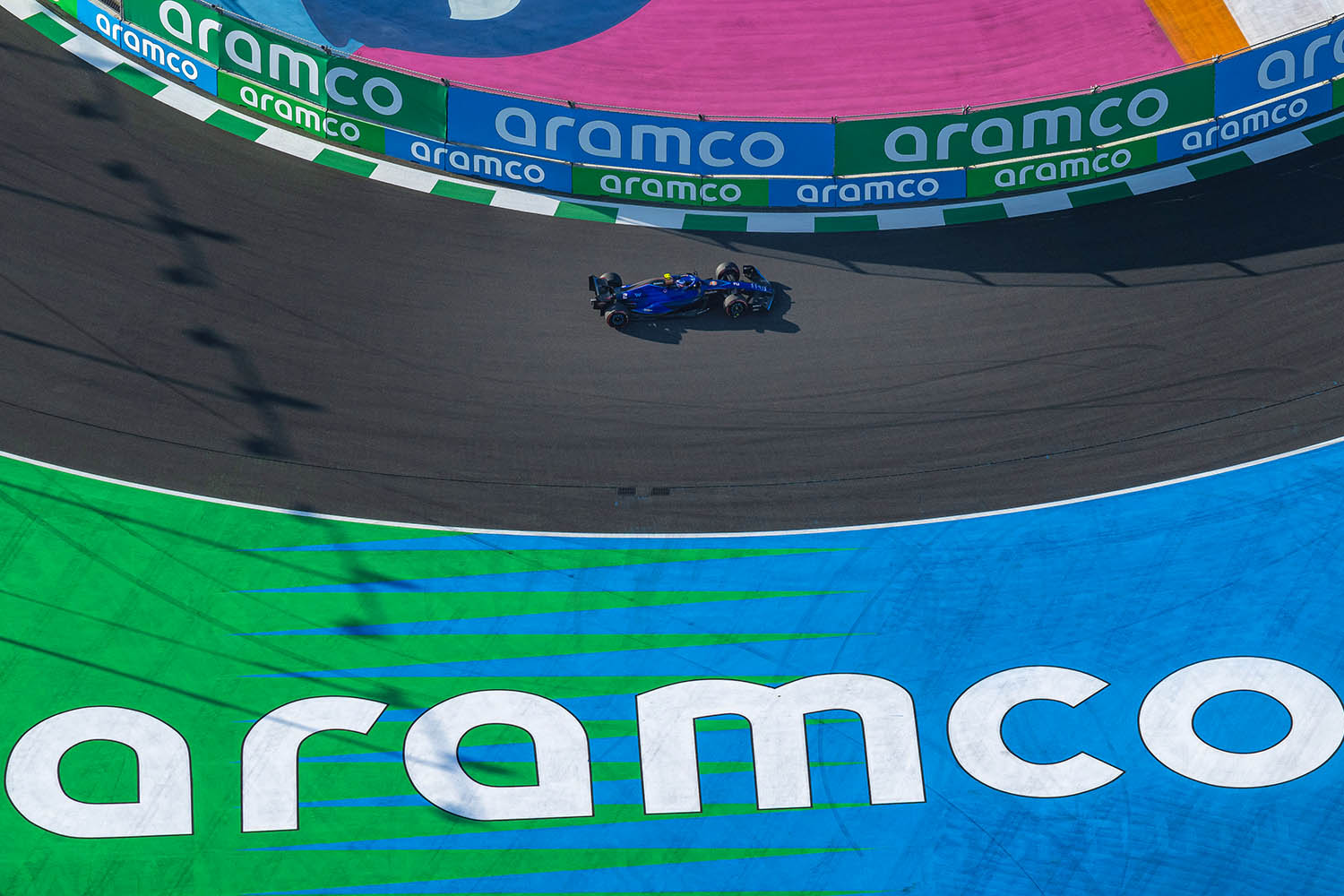
Documents obtained under Freedom of Information laws show that Formula 1 has been lobbying against the EU’s planned ban on the sale of new petrol and diesel cars, and to cast doubt on the wisdom of adopting electric cars.
So what? F1 is sponsored by Aramco, the Saudi national oil company. The lobbying suggests their partnership may be about more than burnishing Aramco’s reputation; it may be intended as a way for the Saudi business to extend its influence over green policies in Europe.
Context. Saudi Arabia has spent more than $6 billion on sport and sportswashing since 2021. The EU has meanwhile approved a ban on the sale of new internal combustion-powered cars from 2035. But as Cop28’s hosts welcome Vladimir Putin and more than 2,400 fossil fuel lobbyists to the UAE, there’s increasing concern over the influence of oil and gas producers on efforts to tackle climate change.
E-fuels. Aramco’s sponsorship deal with F1, signed in 2020, included stipulations on the “advancement of sustainable fuels” or “e-fuels”.
These are synthetic products promoted by carmakers including BMW, Renault and Mercedes-Benz as better for the climate because they burn more cleanly than conventional petrol.
Synthetic fuels are made using carbon dioxide from the atmosphere, but many experts say that – like so-called sustainable aviation fuel – they aren’t as green as they seem: studies indicate that they can be no less polluting than conventional petrol.
The documents. Records obtained by SourceMaterial, a non-profit investigative newsroom, reveal that F1 wrote to the office of Frans Timmermans, then EU vice-president and climate action commissioner, to
- set out the benefits of “sustainable fuels”;
- oppose a plan to ban the sale of new combustion engines by 2035; and
- call the idea of replacing them with EVs a “huge one-way bet on a relatively new technology”.
Following the letter, sent last September, F1 held meetings with Timmermans’ aides, with Paolo Gentiloni, an EU commissioner whose brief includes the European Green Deal; and with three MEPs from the European Parliament environment committee to discuss “CO2 emissions standards for small vehicles”.
These MEPs included Andreas Glück of Germany’s FDP, who later backed an amendment to EU emissions regulations stating that e-fuelled cars can “continue to play a role in the transition pathway” and calling for a Europe-wide “alternative fuels infrastructure”.
Trojan horse? “In meetings with MEPs, Saudi Aramco sounds like a bad oil and gas company owned by a repressive regime,” says Belén Balanyá, a researcher at the Corporate Europe Observatory, a campaign group. “In contrast Formula 1 has a lot of fans, people like it, and by removing Saudi Aramco and using Formula 1, you are removing from sight who is actually benefiting from this lobbying.”
To note:
- F1 hired the same PR company as Aramco, Boldt, to lobby EU lawmakers, and spent between €50,000 to €99,999 on lobbying in 2021, according to the EU transparency register.
- In March, following pressure from the FDP, EU ministers made a deal to allow sales of some cars running on synthetic fuels.
F1 spokesman Liam Parker called suggestions that it was lobbying on Aramco’s behalf “completely wrong”. A spokesman for Glück said it would be “clearly wrong” to suggest he had been influenced by F1. An Aramco representative declined to comment.
E-fuels lobbying is about more than shaping the vehicle market in decades to come, says Jim Krane, fellow for energy studies at Rice University’s Baker Institute in Texas: it goes to the very heart of the Saudi monarchy’s survival.
Jess Staufenberg is an investigative journalist for SourceMaterial. You can read their coverage of this story here.











